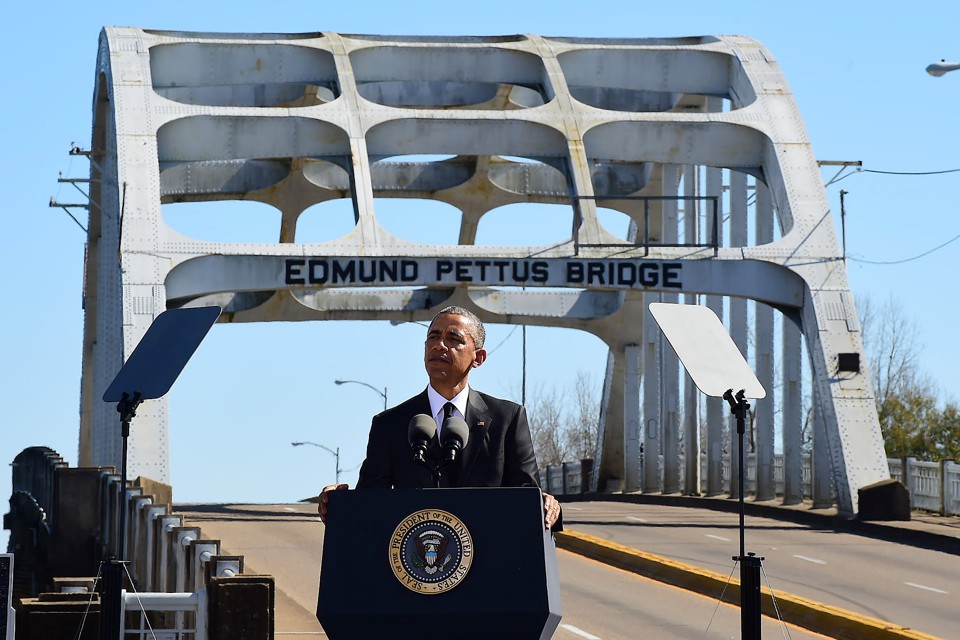The Obama ParadoxPosted in Articles, Barack Obama, Media Archive, Politics/Public Policy, United States on 2017-01-09 21:25Z by Steven |
Slate
2017-01-09
Jamelle Bouie, Chief Political Correspondent
Our first black president has an unyielding faith in the goodness of America. It got him elected. And it will cost him his legacy.
The myth of Barack Obama usually begins with his speech to the 2004 Democratic National Convention, and for good reason—it was the speech that jump-started his political career, putting the then–state senator on the fast track to national office. But it wasn’t the speech that made him president. That speech was delivered at a moment of crisis. His former pastor, Rev. Jeremiah Wright, was in the middle of a media firestorm over a sermon he had given in 2003 in the wake of the Iraq invasion. “No, no, no. Not God bless America,” thunders Wright in the now-infamous video. “God Damn America!”…
…For Obama, who built his political appeal on his distance from this rhetoric—from the tenor and tone of traditional black politics—Wright’s sermon was a disaster in the making. To operate in the mainstream, to attain influence and power, black public figures have to navigate a narrow strait of acceptable behavior. They cannot indulge their anger or give way to their passions. And for Obama, who sought an office all but reserved for white men, he had to prove that he wasn’t an Al Sharpton or a Jesse Jackson, that he held no resentment or frustration with the country. And so on March 18, 2008, Obama delivered an address in Philadelphia now known as his “A More Perfect Union” speech. In it, he repudiated Wright’s anger without dismissing its sources, and along the way he demonstrated the qualities that have defined him as president: a sense of balance, a willingness to look to the better angels of his opponents, a belief that there is always common ground…
Read the entire article here.


